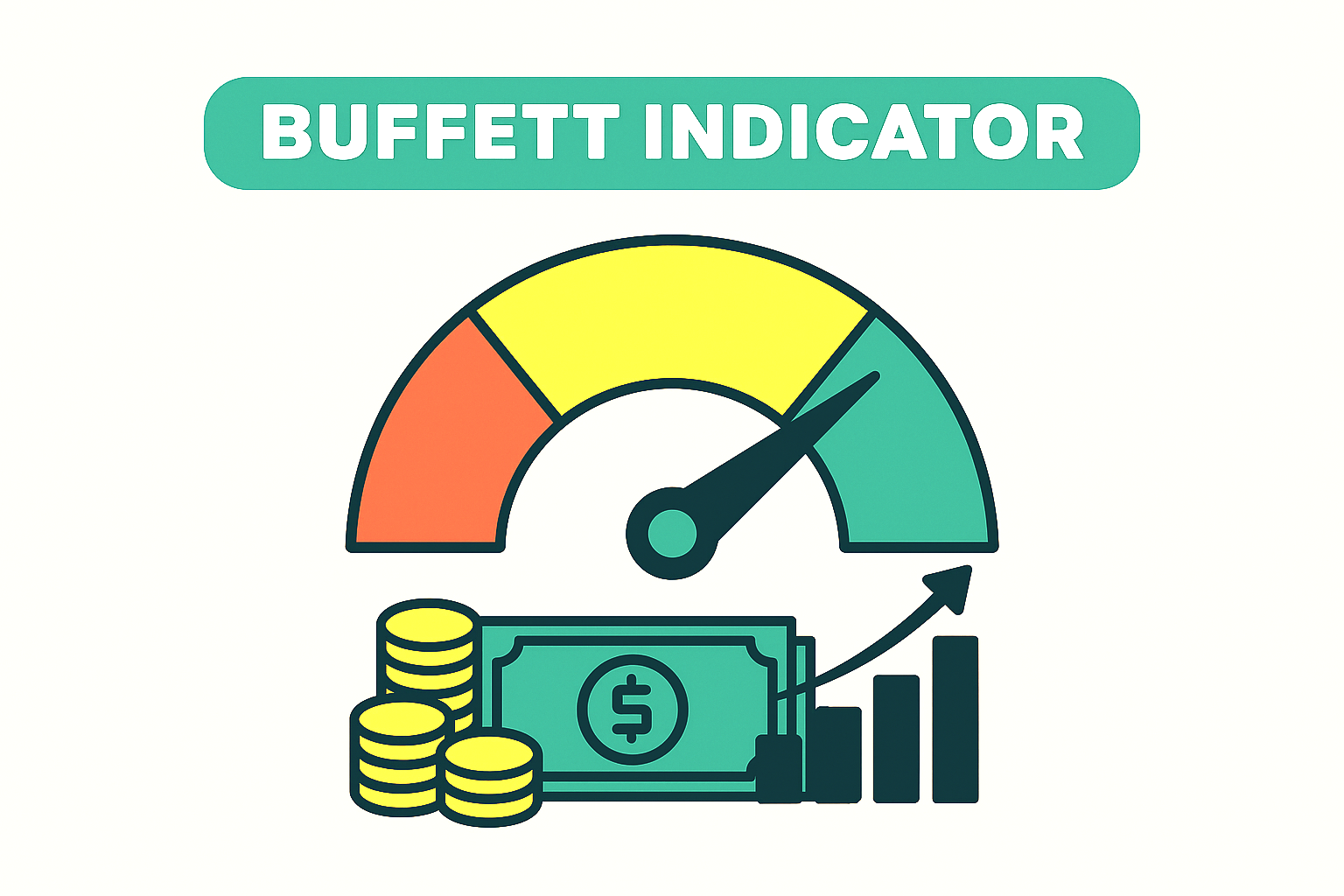The so-called ‘Buffett Indicator’—a stock market valuation metric championed by Warren Buffett—has surged past 200%, reigniting concerns that equities may be dangerously overvalued.
The ratio, which compares the total market capitalisation of U.S. stocks to the country’s gross domestic product (GDP), now sits well above the threshold Buffett once described as “playing with fire”.
Historically, the Buffett Indicator has served as a broad gauge of whether the market is trading at a premium or discount to the underlying economy.
100%
A reading of 100% suggests that the market is fairly valued. But when the ratio climbs significantly above that level, it implies that investor optimism may be outpacing economic fundamentals.
200%
At over 200%, the current reading suggests that the market is valued at more than twice the size of the U.S. economy. This level is not only unprecedented—it’s also well above the peak seen during the dot-com bubble, which ended in a dramatic crash in the early 2000s.
Buffett himself has warned in the past that when the indicator reaches extreme levels, it should serve as a ‘very strong warning signal’. While he has not commented on the current spike, the metric’s ascent has prompted renewed scrutiny from analysts and investors alike.
Some argue that the indicator may be distorted by structural changes in the economy, such as the rise of intangible assets and global revenue streams that aren’t captured by GDP alone.
Others point to low interest rates and persistent liquidity as reasons why valuations have remained elevated.
Do not ignore the warning
Still, the psychological impact of the 200% mark is hard to ignore. It suggests that investors may be pricing in perfection—expecting strong earnings growth, low inflation, and continued central bank support. Any deviation from this ideal scenario could trigger a sharp revaluation.
For long-term investors, the Buffett Indicator’s warning may not signal an immediate crash, but it does suggest caution. Diversification, disciplined risk management, and a clear understanding of valuation metrics are more important than ever.
As markets continue to defy gravity, the Buffett Indicator stands as a quiet sentinel—reminding investors that even the most exuberant rallies are tethered to economic reality. Whether this is a moment of irrational exuberance or a new normal remains to be seen.
But as Buffett once said, ‘The stock market is a device for transferring money from the impatient to the patient’.
It’s just a matter of ‘time’
🔍 How It Works
Formula:
Buffett Indicator=Total MarketCap/GDP
Interpretation:
Below 100%: Market may be undervalued
100%–135%: Fairly valued
Above 135%: Overvalued
Above 200%: Historically considered ‘playing with fire’, according to Buffett himself
🚨 Current Status (as of late September 2025)
The Buffett Indicator has surged to 218%, breaking records set during the Dotcom bubble and the COVID-era rally.
This extreme level suggests that equity values are growing much faster than the economy, raising concerns about a potential market bubble.
The surge is largely driven by mega-cap tech firms investing heavily in AI, which has inflated valuations.
🧠 Why It Matters
Buffett once called this “probably the best single measure of where valuations stand at any given moment.”
While some argue the metric may be outdated due to shifts in the economy (e.g., rise of intangible assets like software and data), it still serves as a powerful warning signal when valuations soar far above GDP.













